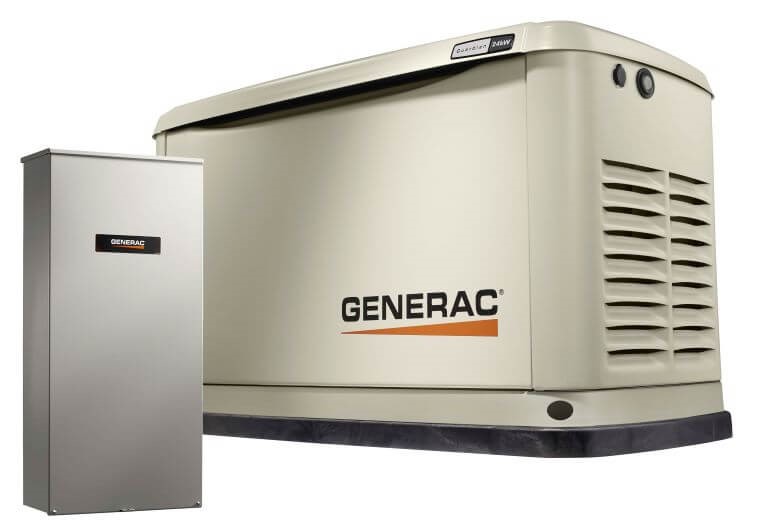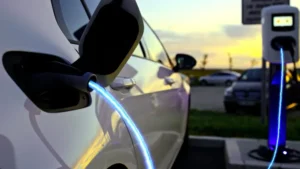How to Choose the Right Standby Generator:
A Comprehensive Guide
Are you looking for a reliable power backup solution for your home or business? A standby generator is an excellent option that can provide uninterrupted power supply during power outages. However, choosing the right standby generator can be overwhelming, considering the different types, sizes, and features available in the market. In this article, we will guide you through the process of selecting the right standby generator for your needs.
What to Know When Choosing a Standby Generator

When choosing a standby generator for your home, it is crucial to know the following information:
The Amount of Power You Need
Before you start shopping for a standby generator, you need to determine your power requirements. The size of the generator you need will depend on the number of appliances, tools, and devices you want to run during a power outage. To determine your power needs, make a list of all the appliances and devices that you want to run during an outage. Note down their power consumption in watts or amps and add them up to get the total power requirement.
To find this you need to add up the wattage of what you plan to power through your generator. This could include lights, your fridge, washing machine, charger or air conditioner. The more devices and devices you want to use, the more electricity you need. Below is a list of approximate wattages for various appliances and devices:
- Refrigerator/Freezer: 600 – 800 watts
- Electric Range (one element): 2500 watts
- Toaster: 1,100 – 1,700 watts
- Microwave: 800 – 1,200 watts
- Coffeemaker: 400 – 800 watts
- Electric Oven: 5,000 watts
- Television: 100 – 350 watts
- Personal Computer: 300 – 2000 watts
- Hair Dryer: 1200 – 1500 watts
- Vacuum: 700 – 1400 watts
- Space Heater: 1,000 – 1,500 watts
- Table Lamp: 150 watts
- Electric Furnace: 5,000 – 25,000 watts
- Heater (radiant): 1,200 – 1,500 watts
- Central Air Conditioning: 2,000 – 4,000 watts
- Electric Water Heater: 3,000 – 4,500 watts
- Water Pump: 1,000 – 2,000 watts
- Window Air Conditioner: 600 – 1,500 watts
- Outdoor Lighting: 500 – 1,000 watts
- Sump Pump: 1200 – 1,800 watts
The Differences Between Starting and Running Wattage
Before you can calculate your power needs, you need to understand the differences between starting power and running power. Starting power, sometimes called surge power, is best defined as the amount of current required to start a device. In most cases, the amount of energy you need to start a device is about three times the energy you need to keep it running properly. Operating wattage, also known as continuous wattage, is the amount of power you need to run the device after you turn it on.
Types of Standby Generators
There are two main types of standby generators: air-cooled and liquid-cooled generators.
Air-Cooled Standby Generators
Air-cooled generators are compact, lightweight, and ideal for small to medium-sized homes or businesses. They are equipped with an air-cooled engine that uses a fan to cool the engine. These generators are usually less expensive than liquid-cooled generators and require less maintenance. However, they have a lower power output and are not suitable for powering large appliances or tools.
Liquid-Cooled Standby Generators
Liquid-cooled generators are more powerful and efficient than air-cooled generators. They are equipped with a liquid-cooled engine that uses a radiator to dissipate heat. These generators are suitable for powering large homes or businesses with high power requirements. However, they are more expensive than air-cooled generators and require regular maintenance.
Generator Fuel Type
Standby generators can be powered by different types of fuels, including natural gas, and propane. The choice of fuel type will depend on your location, availability, and budget.
Natural Gas
Natural gas is a clean and reliable fuel source that is widely available in many urban areas. Natural gas generators are connected to the gas supply line and can provide continuous power supply during an outage. However, natural gas generators are more expensive than other fuel types and require professional installation.
Propane
Propane is a versatile and clean-burning fuel that is stored in tanks and can provide a reliable power supply during an outage. Propane generators are easy to install and maintain, and the fuel is readily available. However, the cost of propane may fluctuate depending on the market demand.
Generator Size and Power Output
The size and power output of the generator are crucial factors to consider when selecting a standby generator. The power output is measured in watts and determines how many appliances and devices the generator can power.
A generator’s size is determined by its power output and can range from small portable generators to large standby generators. The size of the generator you choose will depend on your power requirements and budget.
Automatic Transfer Switch
An automatic transfer switch (ATS) is a device that automatically switches the power supply from the utility grid to the standby generator during an outage. It ensures that the generator starts and stops automatically, eliminating the need for manual intervention.
How to Choose the Right Standby Generator: FAQs
- How do I calculate my power needs for a standby generator?
To calculate your power needs, you should add up the wattage of all the appliances and devices you want to power simultaneously. You can find the wattage information on the device’s label or in the owner’s manual.
To learn more about our power generator services or inquire about our other electrical solutions, contact the Poss Electric team. We are available for you via our online contact form and will be happy to answer all your questions about our services or the details of your project.
- Can I install a standby generator myself?
No, installing a standby generator requires specialized knowledge and skills. It’s essential to hire a licensed and experienced electrician or generator installer to ensure that the installation is safe and up to code.
- How often should I maintain my standby generator?
Regular maintenance is essential to ensure that your standby generator operates smoothly and reliably. You should follow the manufacturer’s recommended maintenance schedule, which usually includes oil changes, filter replacements, and battery checks.
- What’s the difference between a standby generator and a portable generator?
A standby generator is permanently installed and connected to your home’s electrical system, while a portable generator is movable and requires manual connection to your appliances and devices. Standby generators are more expensive but provide automatic backup power, while portable generators are cheaper but require manual intervention during power outages.
- Can I use a standby generator to power my entire home?
Yes, a standby generator can provide enough power to run your entire home, depending on its size and power output. However, you should consult a licensed electrician or generator installer to ensure that your electrical system is compatible with the generator and transfer switch.
Final Thoughts
Choosing the right standby generator requires careful consideration of several factors, such as power output, fuel type, transfer switch, noise level, size, and price. By understanding these factors, you can make an informed decision and ensure that your home or business always has power during a blackout. Remember to calculate your power needs, hire a licensed and experienced electrician or generator installer, and follow the manufacturer’s recommended maintenance schedule. With the right standby generator, you can have peace of mind and uninterrupted power supply.
To learn more about our power generator services or inquire about our other electrical solutions, contact the Poss Electric team. We are available for you via our online contact form and will be happy to answer all your questions about our services or the details of your project.




